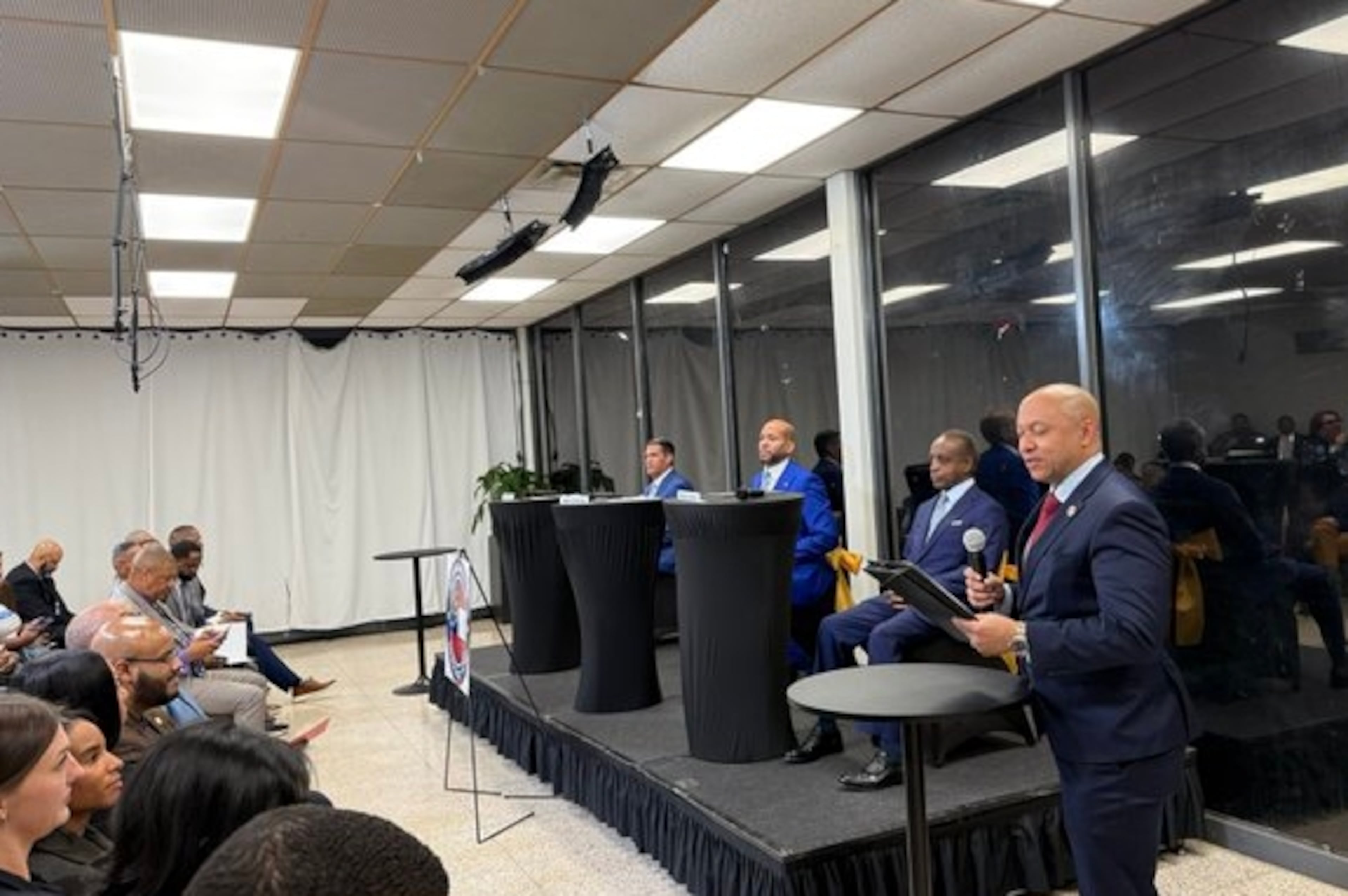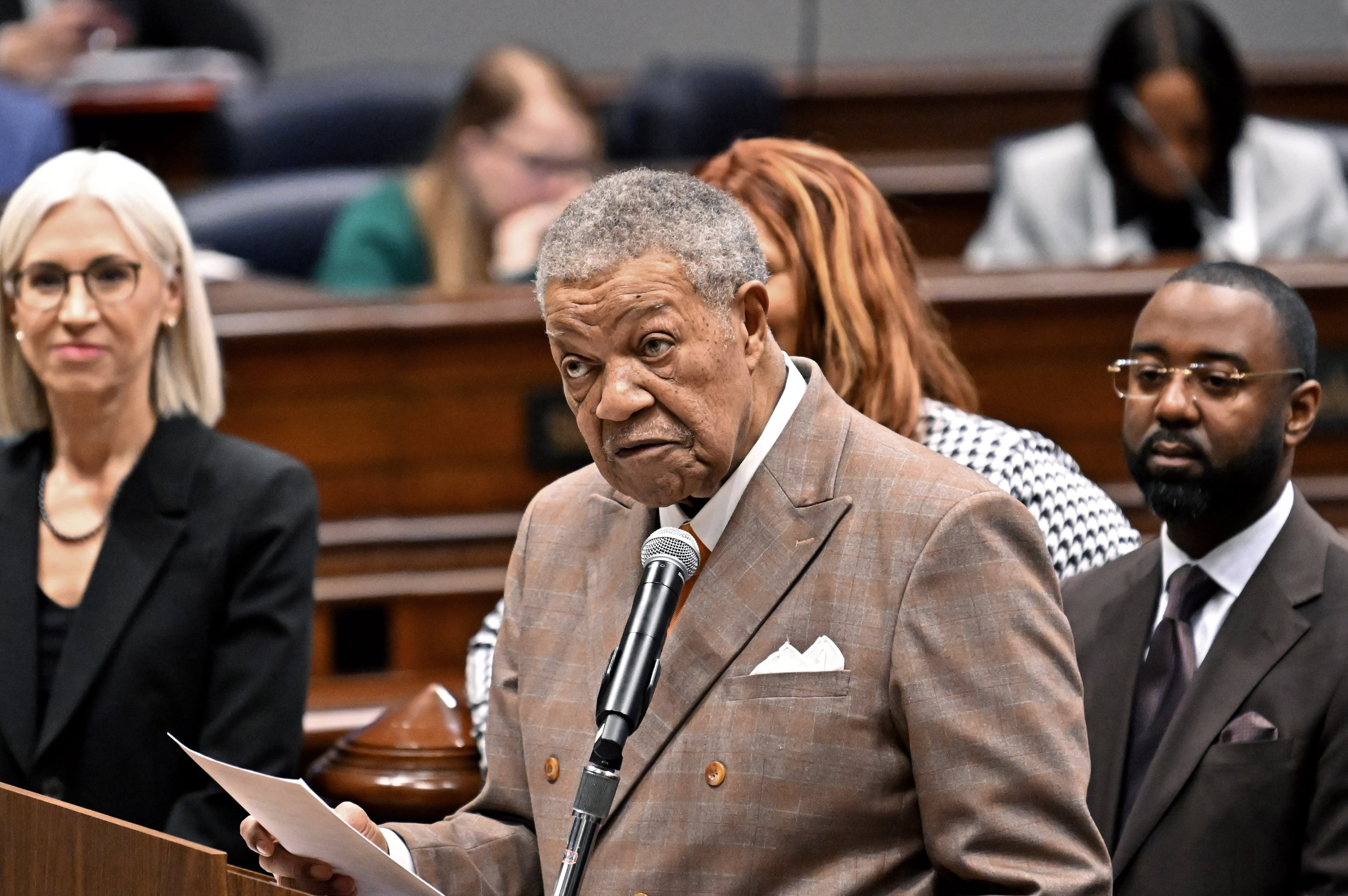New Georgia law could help wrongfully convicted get paid by the state

In most states, when someone has been wrongfully convicted, exonerated by a court and freed from prison — often after being incarcerated for decades — the state will compensate them for the years they lost.
Beginning this year, Georgia will join the 38 other states that have a standardized way of compensating those who’ve served time in prison for crimes they say they didn’t commit and the courts have released them from incarceration.
People released from prison will soon be able to petition for compensation through the Office of State Administrative Hearings and begin to rebuild their lives.
The law, which was proposed in Senate Bill 244, aims to fix what lawmakers have called a “very laborious process” that can sometimes become political and many are often hesitant to get involved with.
Georgia has not compensated anyone who has been exonerated by a court and released from prison since 2022. But that’s not because people haven’t tried.
‘A blessing’
Mario Stinchcomb was 23 years old when he was arrested in 2002 and charged with murder. In 2004, he was sentenced to life in prison. Then, in 2021, he became the first person to be exonerated through the Fulton County Conviction Integrity Unit. The unit is made up of a team within the district attorney’s office that investigates claims of wrongful convictions.
Stinchcomb was 41 was he was released from prison.
Stinchcomb has petitioned the state for the past several years seeking compensation for the time the courts said he wrongfully spent in prison. Each year, his request stalled. Upon hearing the news that a new system would be put in place to take the process out of the Legislature, Stinchcomb said he was cautiously optimistic about his future.
“It is a blessing for all of those who have been in prison, whether it’s a lengthy time or a short time, (who have) just been in prison for something you did not do,” he told The Atlanta Journal-Constitution. “This is a major steppingstone for the Georgia system — being able to be (compensated) when you’ve been taken away from society for so long.”
Kristin Verrill, executive director of Georgia Innocence Project, said the process for exonerees to seek compensation was “simply broken.” The nonprofit organization she leads uses DNA evidence and research to clear people’s names.
“It was arbitrary and unpredictable and highly politicized,” she said. “This new process uses the administrative law procedures that are already in place under Georgia law and create a neutral fact finder whose profession it is to be a fact finder and interpret laws, instead of a legislator having to be faced with those decisions.”
The new procedure will allow someone who has been exonerated to file a claim with the Office of State Administrative Hearings.
That claim would be evaluated by an administrative law judge. If the person who’d been released from prison can prove their innocence, they would be eligible to receive $75,000 per year of incarceration. They would be eligible for another $25,000 per year if they served their time on death row. These cases often involve people who’ve spent upward of 20 years in prison.
The process would return to the General Assembly, though, which would have to include any payment in the state budget.

Terry Talley was 23 in 1981 when he was convicted of a series of LaGrange sexual assaults that he insists he didn’t commit. It resulted in four life sentences. A DNA test in 2009 proved he didn’t commit one of the crimes, but he still had three life sentences from the other assaults that didn’t have DNA evidence.
It took 12 more years before the local law enforcement agency that initially arrested Talley worked with defense attorneys to persuade a judge to agree to exonerate him in three related cases. The district attorney didn’t challenge the release but said the decision should not be considered an endorsement of Talley’s innocence in the whole case.
Talley said it was “about time” the state enact a new process for compensating those who’ve served years in prison before being exonerated and released.
“I feel like all those who get their cases back in court and get exonerated, they got something to live for now,” he said.
Procedural headaches
The process Talley, Stinchcomb and other exonerated people have previously undergone has been called arduous by supporters of the new law.
Once a judge or prosecutor has thrown out the charges against someone who had been convicted, they must find a legislator who is willing to sponsor a resolution that would compensate them. That process often gets bogged down by politics.
State Rep. Katie Dempsey, a Republican from Rome who sponsored the legislation that became the language in SB 244, said it was not easy for the men who’ve been waiting years to be compensated by a state that had wrongfully taken decades from their lives.
“Now we have another opportunity to allow for people proven innocent to have a true chance that is not a retrial from legislators, but a fact-finding process and decision from an administrative law judge valuing the opinion of other judges,” she said.
There’s been a bottleneck in the Senate with some Republican leaders declining to pass legislation compensating those exonerated and released from prison.

Senate Majority Whip Randy Robertson, a Republican from Cataula who is a former sheriff’s deputy, has spent the past several legislative sessions opposing the procedural change offered by House members. This year, he proposed his own version. That bill didn’t gain any traction.
Robertson said for the past few years, he’s pulled the case files for each person who’s seeking compensation and gone back through them to determine if they are truly innocent. He said someone being released from prison because a district attorney declines to retry a case because of a technicality or because it has been so long since the original trial that the original witnesses are dead does not mean they’ve been exonerated.
‘An outlet to be heard’
After years of blocks, House GOP leadership inserted the language of Dempsey’s bill to overhaul the wrongful conviction compensation process to legislation that was heavily supported by Senate Republicans: a bill allowing criminal defendants to recover attorney fees and legal costs if the prosecutor of their case is disqualified for misconduct and the case is dismissed.
That means the new law could allow President Donald Trump to recoup his attorney fees if Fulton County District Attorney Fani Willis is disqualified in the case related to Trump’s efforts to overturn his 2020 loss to Democrat Joe Biden in Georgia.
During the debate of SB 244, Robertson said that, while he opposed the amendment to the bill, he supported the original topic enough to vote for the legislation. “We’ll tackle the other thing that’s attached to it, and we’ll come up with a process that works,” he said.
“So understand, if anybody in this state is innocent (and) they’re convicted, we should make sure that we take care of them,” he said. “We should make sure they have due process, but we need to do it the right way. And we need to start remembering that for every crime there is — and there are 50,000 people in the Georgia Department of Corrections — means there are thousands upon thousands upon thousands upon thousands of crime victims — if they are alive — walking the streets of this state, looking for somebody to stand up for them.”
State Rep. Scott Holcomb, an Atlanta Democrat who has worked on the issue for years and was a cosponsor on Dempsey’s bill, said having the procedural change pass the Legislature was “a long time coming.”
“This is going to mean a lot for the people who need it,” he said. “No compensation claims have been approved since 2022, and there are several who are clearly innocent and will benefit from this. So I’m glad that now they can present their case and have an opportunity to receive compensation. This doesn’t guarantee that they’ll prevail, but it gives them an outlet to be heard.”



